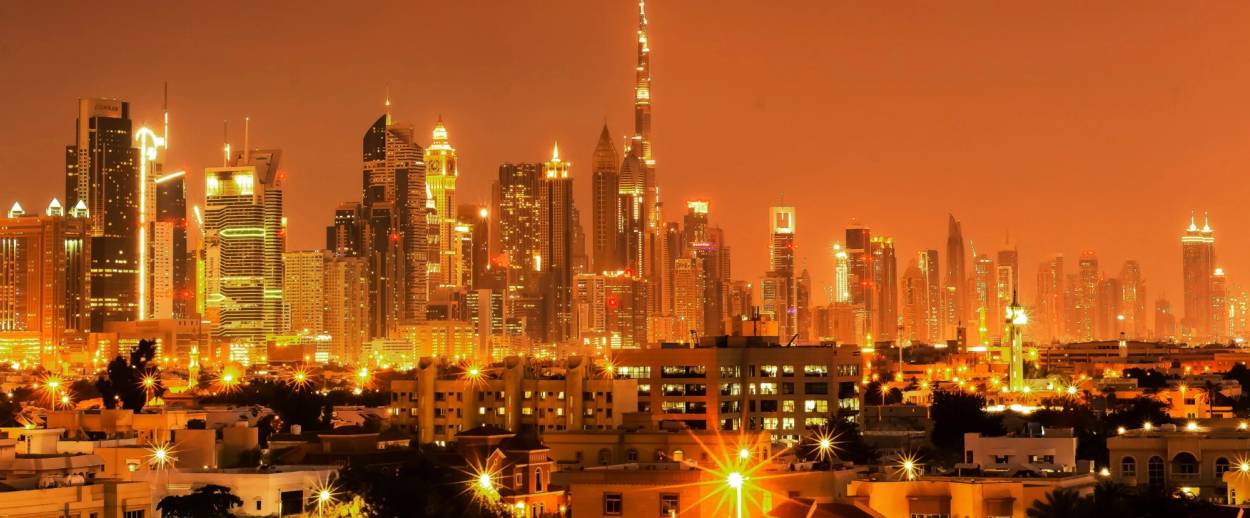Will Israel Be Allowed to Participate in the 2020 Universal Exposition in Dubai?
A looming trade fair raises complex diplomatic questions




More than a hundred nations are expected to participate in the next Universal Exposition, a six-month world fair taking place in Dubai in 2020. Each with its own pavilion, every country will showcase its achievements and projects in multiple fields of innovation. As soon as Dubai won the bid to host the event back in 2013, many wondered: Will Israel be excluded from the event?
Just three years ago, Israel presented an eye-catching living wall covered with plants at Expo in Milan, Italy. Over one million people visited the massive, green installation, behind which hid a pavilion featuring 3D projections, sounds, and visuals related to the theme of the fair—food, sustainability and innovation. (Michelle Obama and Bono from U2 were just two of the most prominent visitors of the 21 million people who attended Expo in 2015.)
As the United Arab Emirates prepare to host the next edition of the fair, dozens of nations have already signed their participation contracts. Germany was one of the latest countries to sign one; in early March, it announced an investment of 50 million euros for its participation.
It’s no secret Israel’s diplomatic relations with most Arab countries are—at least on paper—non-existent. Under-the-table talks have increased in recent years, especially with Arab Gulf states like Saudi Arabia and the Emirates. These meetings usually concern military coordination, often related to Iran, a mutual enemy of Israel and the Gulf states.
It’s one thing, though, for the Emirates to hold a closed-door meeting on shared military interests, and another for it to open its gates to Israel in the most public way possible, by allowing a pavilion under the Israeli flag at Expo 2020. It would be quite a stretch for a country that does not recognize Israel as a state: Giving a green light to Israel for a pavilion would mean allowing several Israelis into the country, possibly changing its non-entry policy, and de-facto recognizing the existence of a Jewish State.
Yet, the opposite scenario is just as unrealistic. By entering its candidacy for the world fair, the Emirates must have accepted not to discriminate against any country that may want to participate. The fair revolves around tourism, and it would be peculiar if Dubai was open to an Israeli pavilion but not to Israeli tourists.
In 2015, Israel reportedly opened an office in Abu Dhabi as its mission to the United Nations International Renewable Energy Agency (IRENA). The UAE is the permanent host country for the agency, and as such it’s required to welcome the establishment of the members’ missions on its soil. Only one Israeli citizen, Rami Hatan, was reported to be moving to Abu Dhabi to lead the mission. A few months later, Israel’s energy minister Yuval Steinitz visited Abu Dhabi, allegedly to discuss “shared concerns” related to Iran.
It may be no coincidence that one of the main themes of Expo 2020 is sustainability and renewable energy. As the clock ticks and we get closer to the event, scheduled to open in October of 2020, we’ll soon find out if Israel will participate and, if so, how this event might change the diplomatic relations between the two countries.
Simone Somekh is a New York-based author and journalist. He’s lived and worked in Italy, Israel, and the United States.